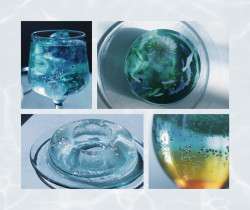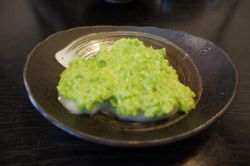
Originally published on metropolis.co.jp on March 2012

DEMOLITION MAN
Regarding “The Final Frontier” (Feature, Mar 2): Great article. One haikyo often overlooked is literally all around us: the abandoned homes and businesses of the Meiji and post-WWII era. Often highly personable spaces, they sit awaiting the inevitable wrecking ball. As soon as the weather warms up, I’ll be covering my shitomachi area to record the final days of these lovely abandoned sites. You should do so, as well. Because the replacements are not nearly as personable.—darthmiffy
DOING LUNCH
Regarding “The Battle of the Bento” (The Last Word, Mar 2): The thing I don’t like about this bento culture is that appearance has precedence over taste and/or quality of ingredients. i.e an Anpanman-shaped riceball jammed with flavorings would be “better” than an organic brown rice one with an organic plum from your own garden. Nice article, but why not show that western lunchboxes can be just as filling, and even as beautiful looking as Japanese ones?—Charltzy
“Why not show that western lunchboxes can be just as filling, and even as beautiful looking as Japanese ones?” Ha ha! Because they’re not. get over it! Love this article, very cute. “It was such a tiny sad little sandwich”—now that’s hilarious!—johnnyrabbit
CONSUMPTION DUTIES
Regarding “Taste Tester” (Global Village, Mar 2): Thanks for the article about a really important topic. As someone who helps on a local organic farm, I think it’s great people care more about quality and safety of food, but there remains a responsibility to dig even deeper. Learn when things in your region are in season. Learn how to decipher the kanji for various locations. Otherwise it’s not fair to the growers and producers all around us. There are plenty of farmers’ markets in Tokyo too, where shoppers can learn seasonality while having a chance to talk face-to-face with farmers. Language isn’t a huge barrier, as most speak a wee bit of English and will do their utmost to honestly answer your concerns. An English list of this month’s markets is here: http://meturl.com/farmers. Shameless marketing, I admit, but it’s time for consumers to sort out answers for themselves and stop being afraid of their food.—joanlbailey
KIMCHEE POP
Regarding “Can’t Stop the K-Pop” (The Last Word, Feb 17): Yes, there is a tiny fan base amongst American otaku for Japanese pop music, but your factoid about Korean acts selling out Madison Square Gardens, well, that’s likely the case as there are over 200,000 expat South Koreans living in greater NYC and maybe 5,000 expat Japanese. The Japanese quit migrating just before WWII whereas most of the Koreans living in the US went in the last 25 years or so. Japanese-Americans are now into the fourth generation, most don’t speak Japanese and most have never been to Japan. This, in fact, is a major problem with Japanese-American societies around the country—like in the “homeland,” they are graying rapidly because their children, grandchildren and great grandchildren have next to no interest in—and feel little connection to—“the old country.” The Korean diaspora, being more recent, looks much more like the Chinese one—their own businesses, churches, and even their own schools in some places.—Jeffrey
Metropolis wants to hear from you. Send your comments to letters@metropolis.co.jp. Note that letters may be edited for length and clarity.







